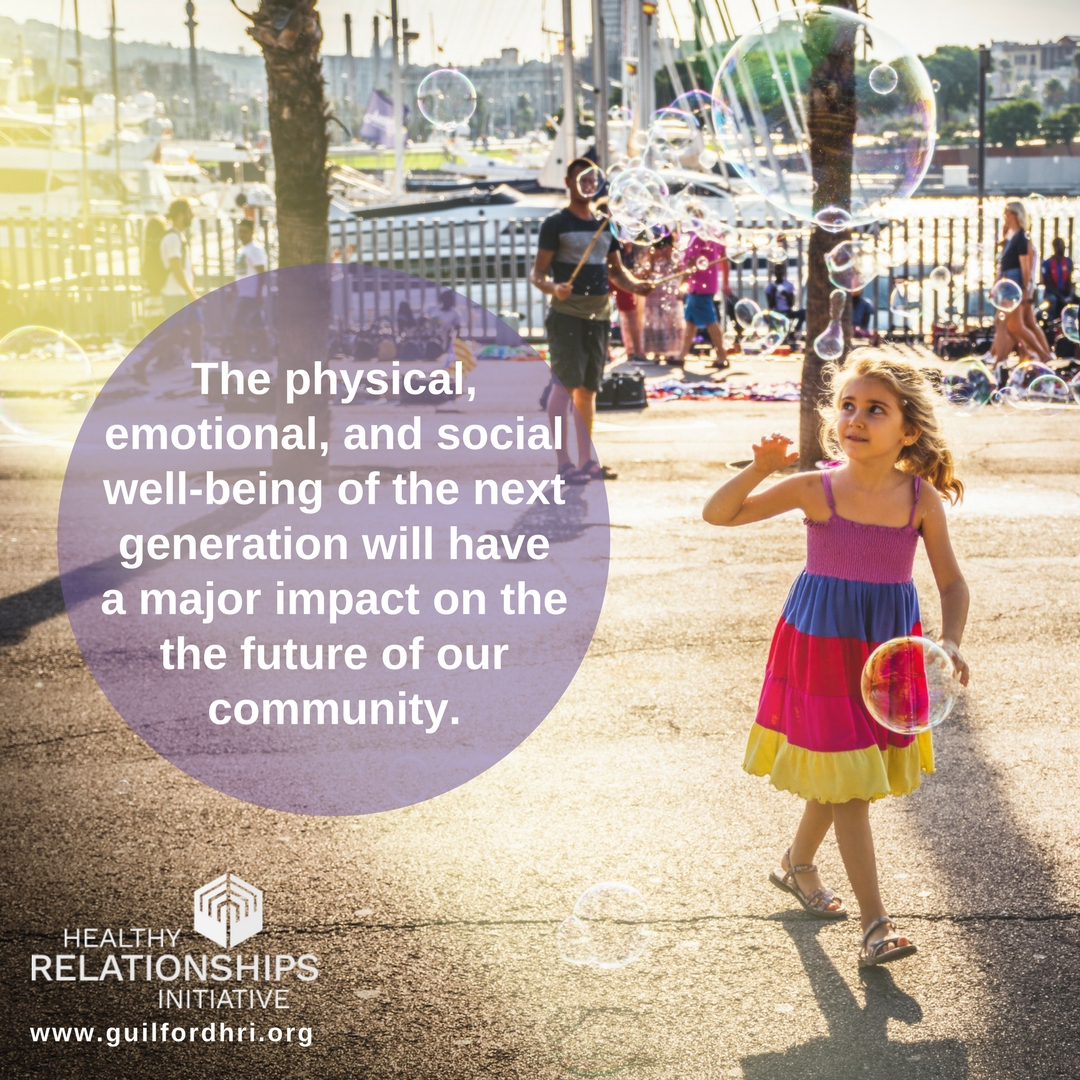
Positive Relationships with Caring Adults
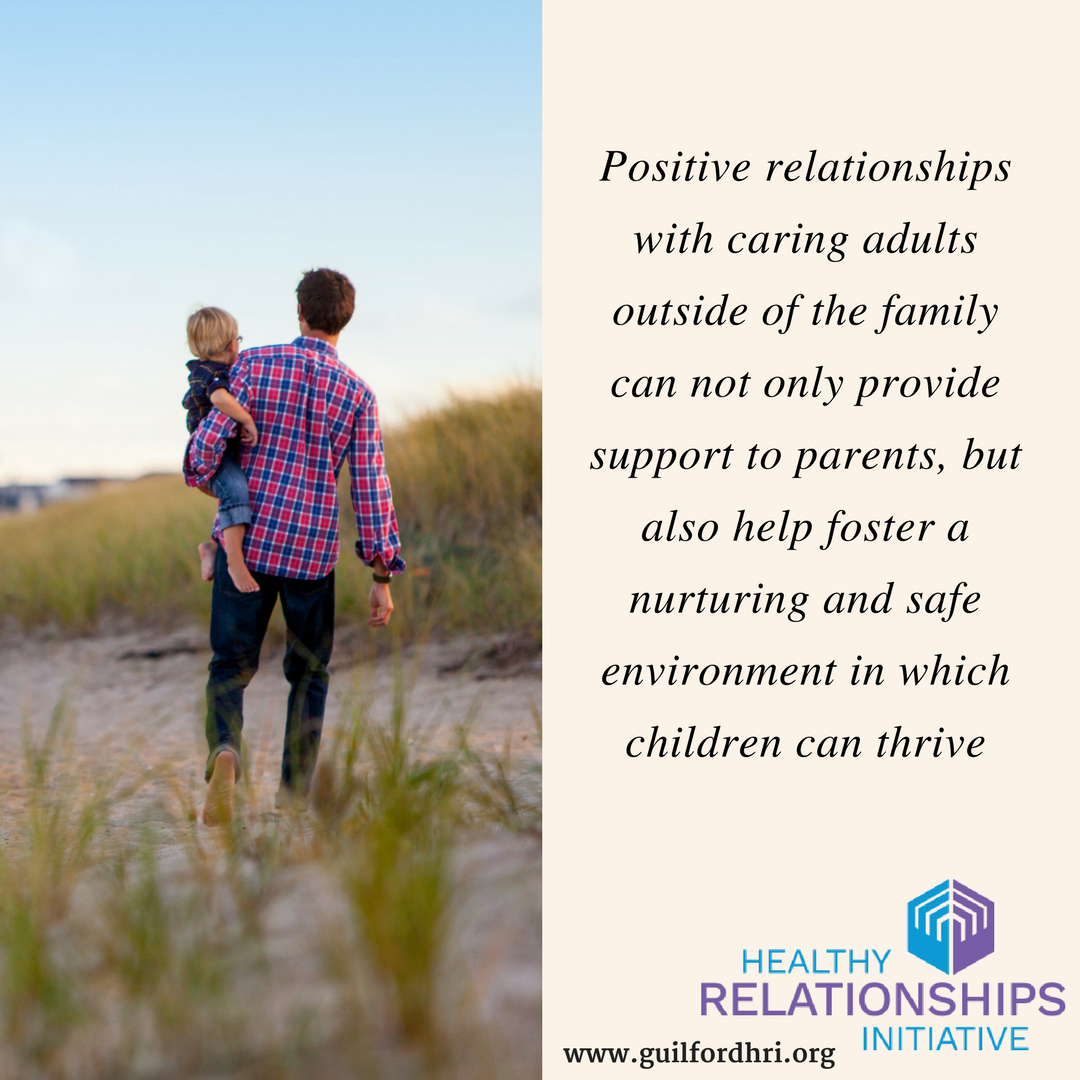
Feel Alone
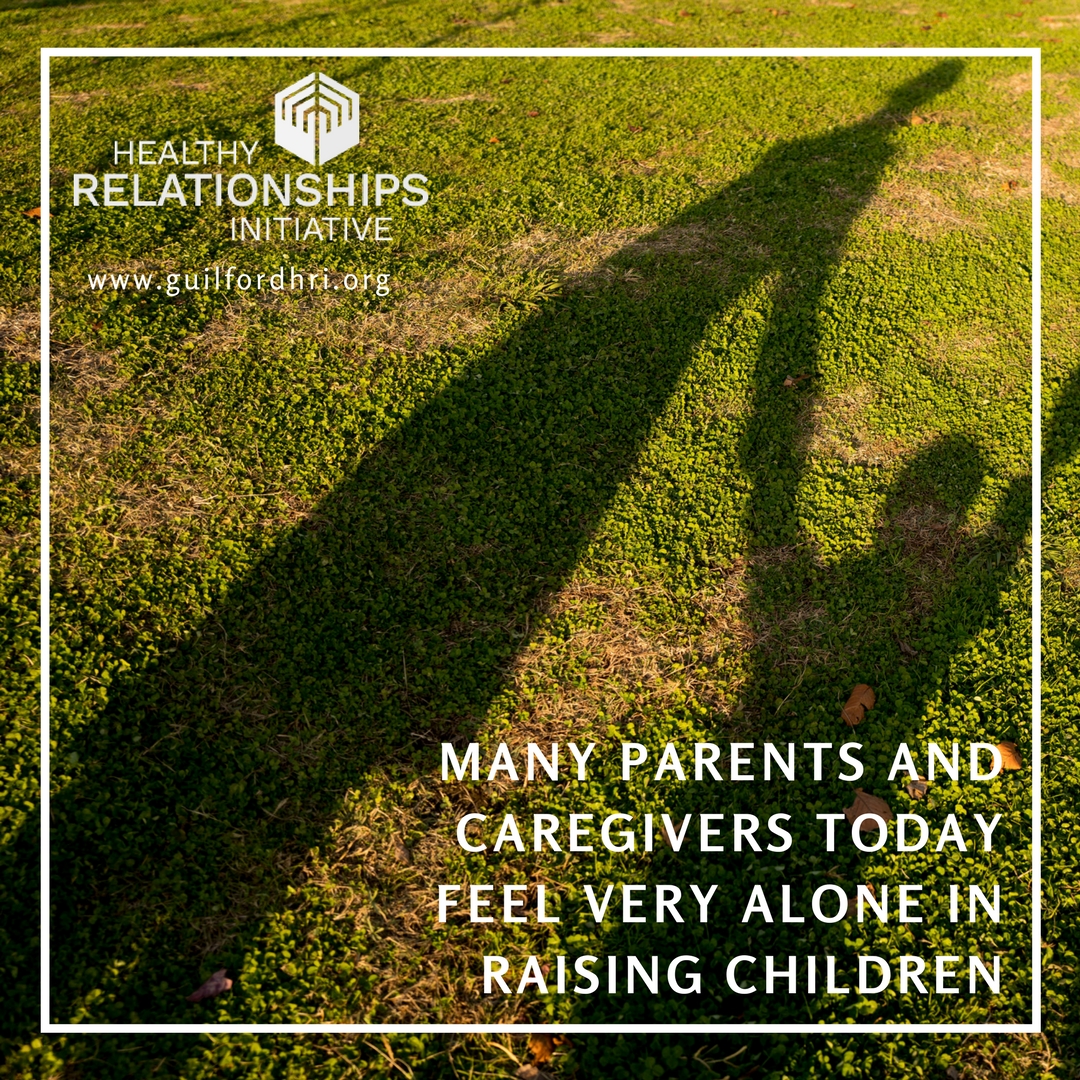
Relationships with Caring Adults
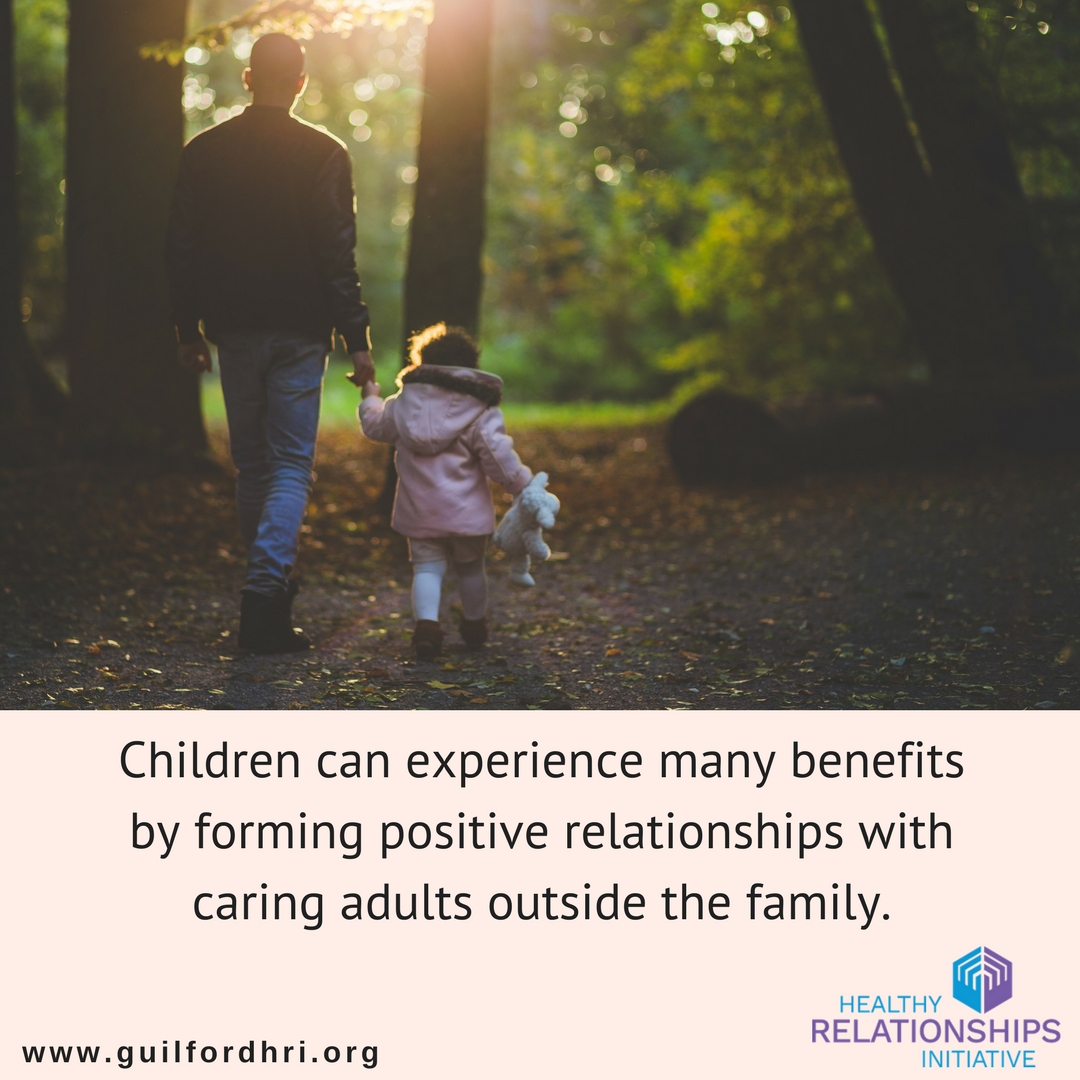
Building a Village
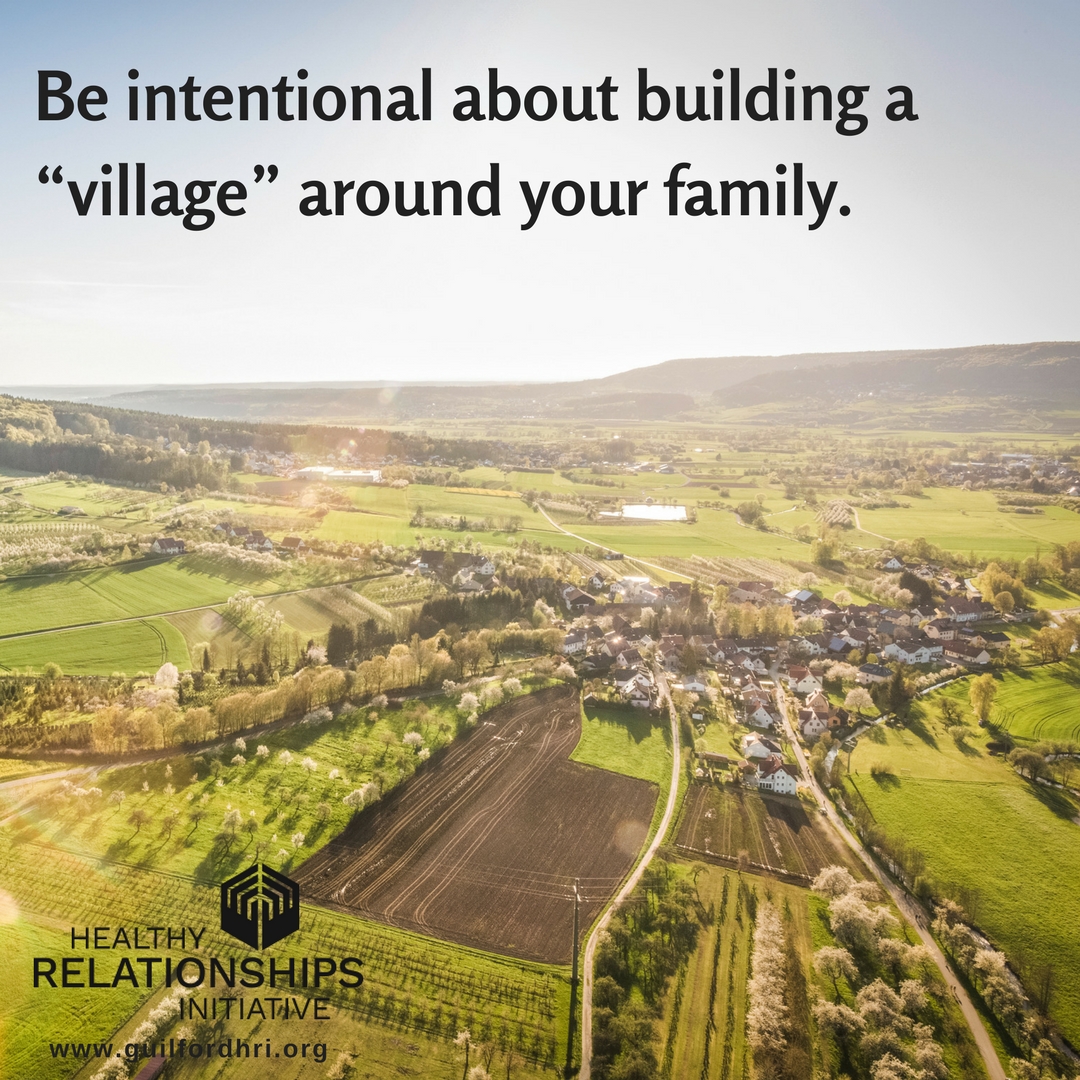
Building A Parenting Village
By Christine Murray, HRI Director
We’ve all heard the saying, “It takes a village to raise a child.” It makes good sense to think that we need all adults in a community to work together to foster a positive environment in which children can thrive. But, in reality, many parents and caregivers today feel very alone in raising children. Isolation can lead families to feel stressed, disconnected, and pressured.
It’s no surprise, then, that isolation has been identified as a key risk factor for child abuse. Of course, all families that are isolated are not abusive. However, a supportive social network surrounding a family offers a protective buffer against an abusive home environment. In addition, the Centers for Disease Control and Prevention have identified “caring adults outside the family who can serve as role models or mentors” as a potential protective factor against child abuse. Therefore, positive relationships with caring adults outside of the family can not only provide support to parents, but also help foster a nurturing and safe environment in which children can thrive.
There are many reasons why so many families today feel alone, including how busy everyone is, greater geographic distance between extended family members, and reliance on technology, rather than face-to-face interactions, for many social interactions. Families today have so many demands on their time, and friendships and other social relationships are often left by the wayside so that parents and caregivers can attend to more immediate needs of their children and jobs.
Children can experience many benefits by forming positive relationships with caring adults outside the family, such as teachers, coaches, leaders in religious communities, neighbors, and family friends. These types of relationships help children have other trusted adults for seeking guidance when they face challenges in life, as well as adults who can offer encouragement and mentoring for different areas of life.
Of course, as parents and caregivers, we need to be careful about the people we bring into our children’s lives. And, it’s important to teach children to speak up if anyone does anything that makes them feel unsafe or uncomfortable. We need to carefully get to know other adults in our children’s lives, especially if there are any times when our children will be left in their care.
To help children get the most out of their relationships with other caring adults, parents and caregivers, child-serving organizations, and community members can take the following steps:
In the family:
- Get to know the adults in your children’s lives! Parent involvement in school settings can vary widely based on the age of the child, but parents and caregivers can reach out to their children’ teachers and other school personnel to learn how they can best get involved and support teachers in their work.
- Seek out trusted adults who you think could have a positive influence on your child. If you think your child could benefit from a mentor outside of your family, considering asking one of these people to serve in that capacity, and/or seek out a formal mentoring program in your community.
- Be intentional about building a “village” around your family. Foster positive social connections. If you feel isolated or alone, consider positive sources of support in the community that are aligned with your values and beliefs, especially as they relate to parenting.
In organizations that serve children:
- Consider ways to facilitate connections among family members with children involved in your programs. Often, parents just drop in and out of organizations to drop off and pick up their children, leading them to miss opportunities to connect with other parents. Consider one-time or regular events to bring whole families together, such as educational programs for parents or a family picnic.
- Be on the lookout for families who seem especially isolated or disconnected from other families. Reach out to these families to see if you can help them get plugged into other possible sources of social support.
In the broader community:
- Any adult who interacts with children can consider ways to build more positive encouragement and mentoring into those interactions. For example, youth sports coaches could add mentoring about important life lessons to their skill development plans in practices. Any adults who have opportunities to connect with children can take time to really listen to children and offer them positive encouragement and support.
- All members of our community can look for opportunities to support organizations and resources that support children. This could be financial support, fundraising efforts, or volunteer activities.
The physical, emotional, and social well-being of the next generation will have a major impact on the future of our community. Therefore, all adults in our community can consider ways to offer care and support to children and their families. Let’s all work together to help children in Guilford County see a community full of kind, caring people!
You Are Important, Too
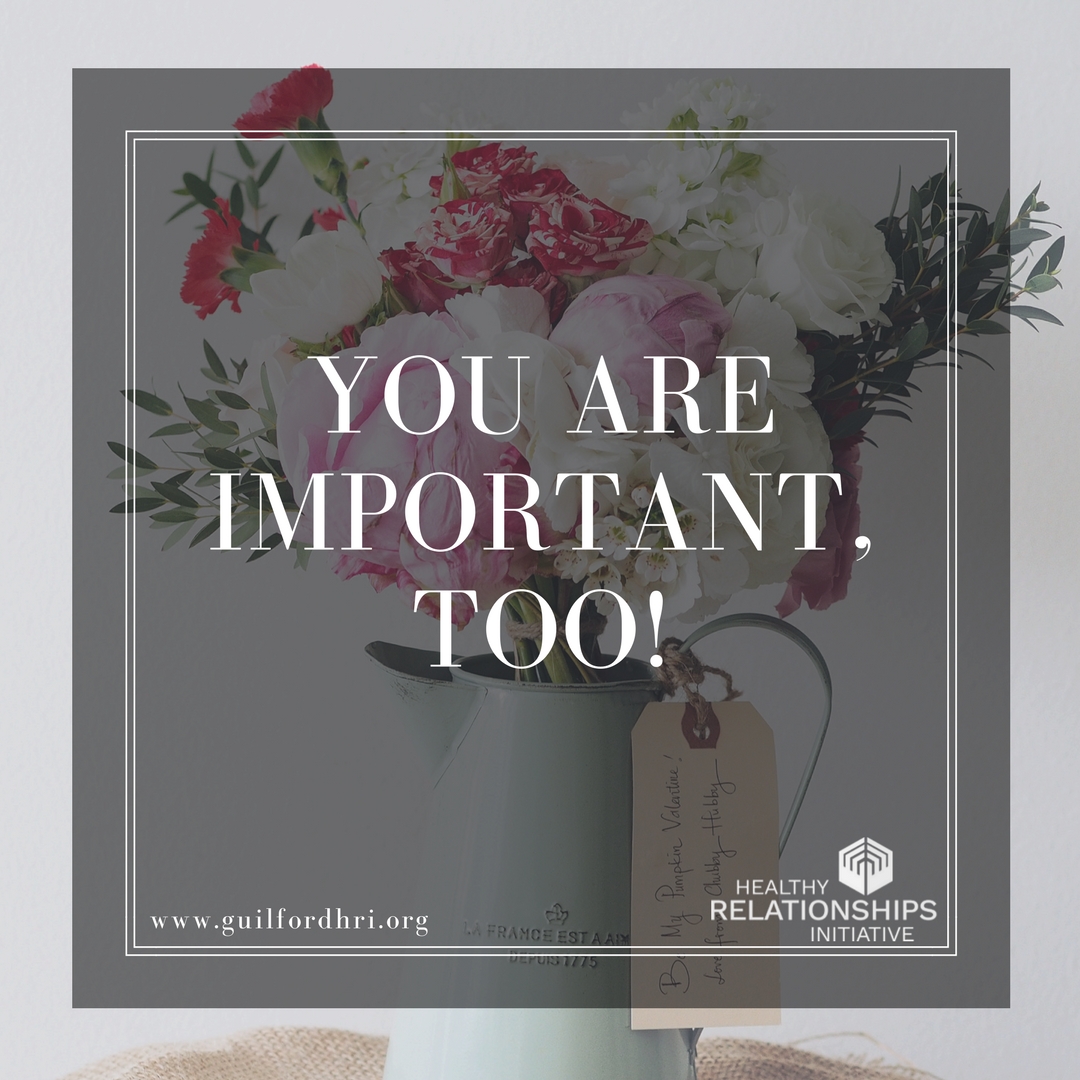
Physical, Mental, and Emotional Health
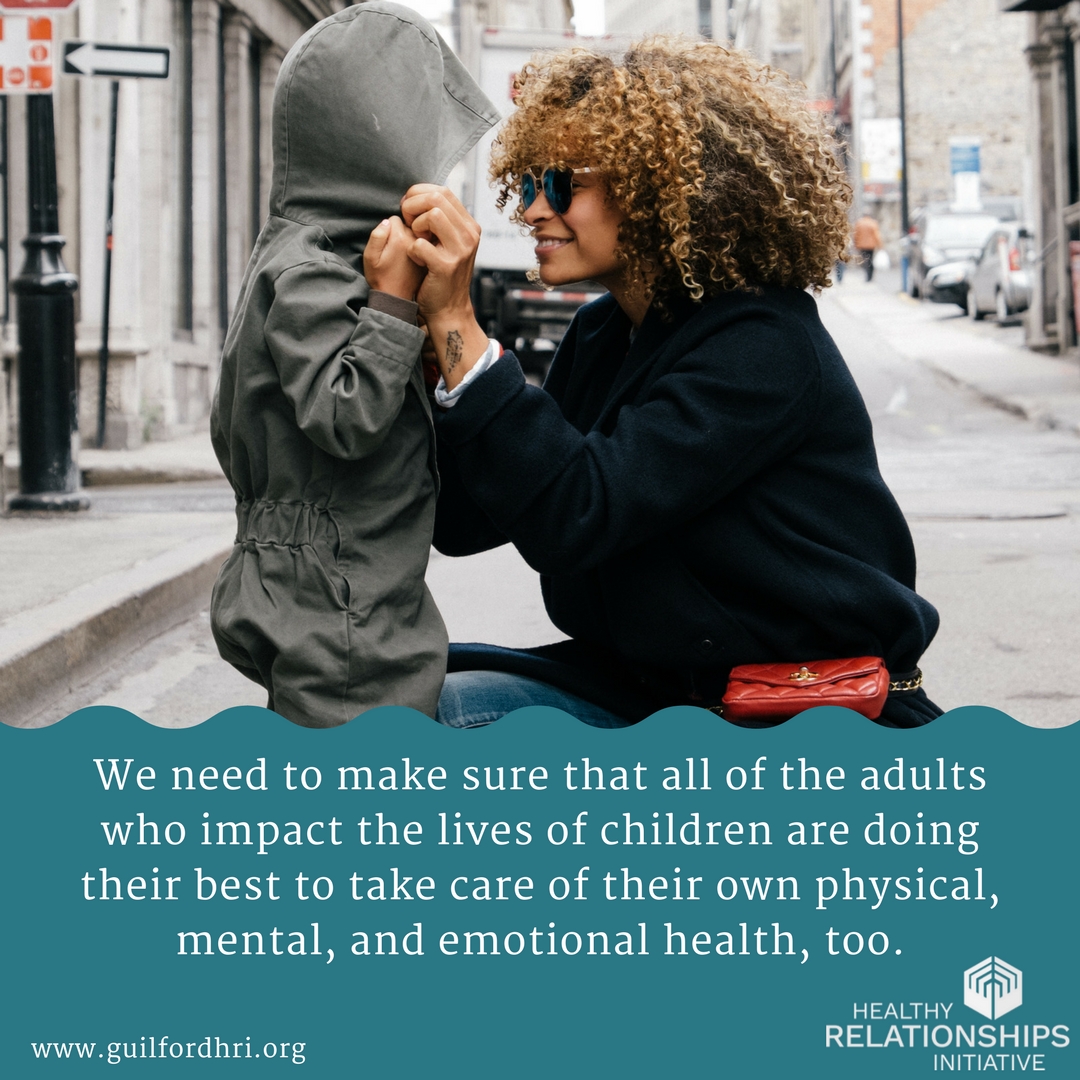
Take Care of Yourself

The Benefits for Children When Adults Take Good Care of Themselves
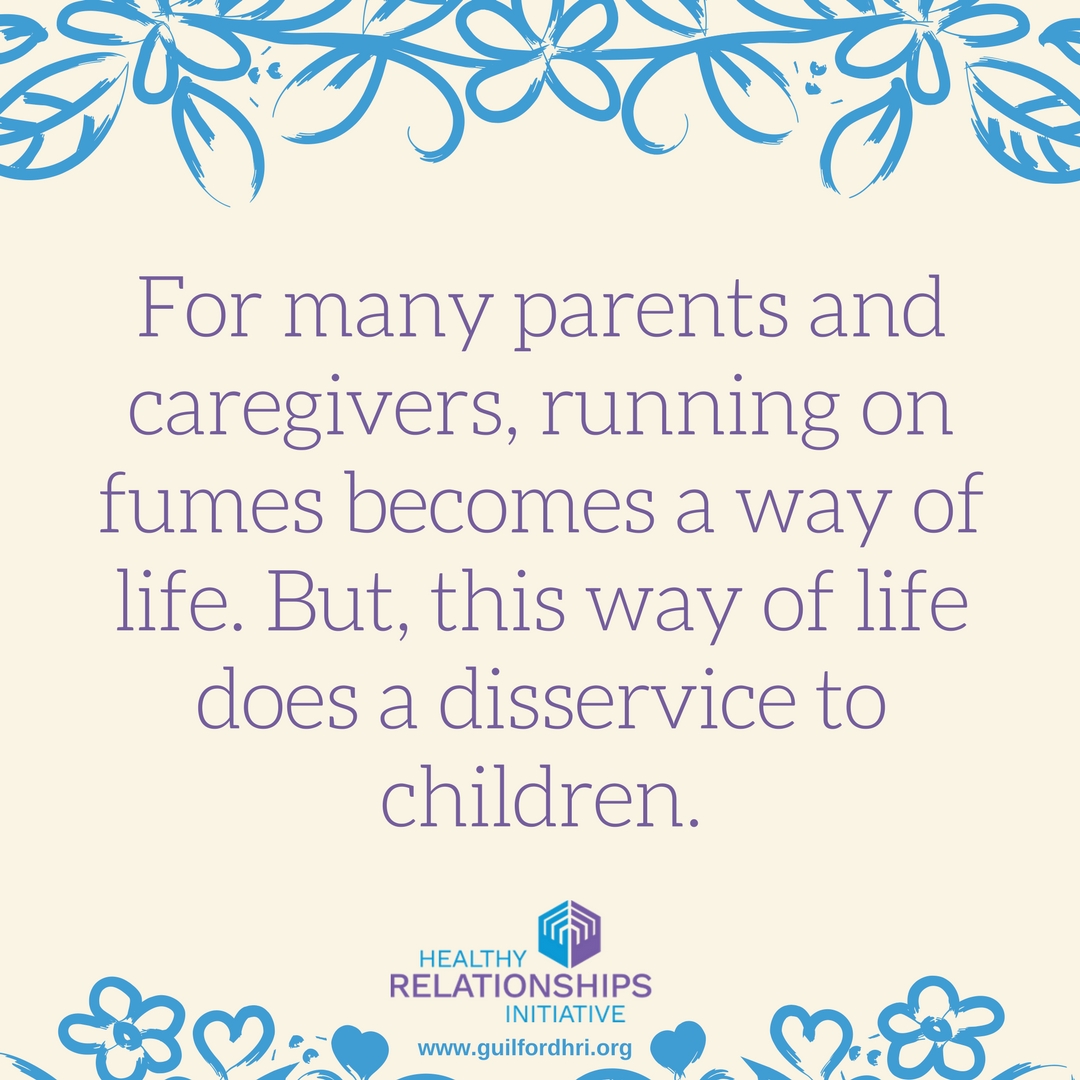
By Christine Murray, HRI Director
All this month in our HRI blogs, we’re looking at protective factors against child abuse. At first glance, it may seem counter-intuitive that self-care among parents and caregivers is one of these protective factors. Shouldn’t we be focused more on factors that directly impact children: things like safe homes and communities, consistent and stabling parenting practices, and access to age-appropriate educational experiences?
Of course, it’s important for children to have access to all of these things, but in looking more broadly to the bigger picture, we need to ask, How do children gain access to them? For the most part, children have access to all of the other protective factors through their parents, caregivers, and other adults who support them in school, community organizations, and other resources in the community. Therefore, we need to make sure that all of the adults who impact the lives of children are doing their best to take care of their own physical, mental, and emotional health, too.
Parents and caregivers often feel guilty when they take time for themselves. Children have so many needs and create a lot of work for their parents and caregivers. The to-do list for children can feel never-ending, and so parents can lose themselves in the process of trying to meet all of their children’s needs. Add a household to manage, career demands, and other responsibilities like caring for extended family members or volunteer commitments to the mix, and it’s easy to see why many parents begin to feel that they simply don’t have any time or energy left to take really good care of themselves.
For many parents and caregivers, running on fumes becomes a way of life. But, this way of life does a disservice to children. Think of all the ways that stress and exhaustion can hinder parents’ and caregivers’ ability to best nurture and support their children: impatience, low energy, tense interactions, and a loss of interest in having fun and playing, to name just a few.
Beyond the immediate effects of chronically stressed and exhausted children, consider the longer-term implications of what message this sends to children about adulthood. Wouldn’t it be better for children to view their parents and other adults in their lives as role models for lifelong learning, playing, and joy, rather than to view adulthood as a tiring, sad future that lies before them?
To all parents and adults who view self-care as selfish, consider a different way of looking at this. Taking care of yourself–including your physical, mental, and emotional health–is one of the BEST things you can do for your child! The more you care for yourself, your own relationships, and your own sense of purpose and joy in life, the better equipped you’ll be with the resources and energy to meet the demands of parenting. Not only that, but you can show them, not just teach them, what a happy, healthy, fulfilling life looks like.
Adults in Guilford County can take several steps to help parents and caregivers take good care of themselves so that they’ll be best prepared to care for their children:
In the family:
- Make self-care a daily practice within your role as a parent or caregiver. Even just a few minutes each day can offer time to regroup and take care of yourself. If it’s difficult for you to find time to care for yourself, start small. Can you find even five to ten minutes to do something that you find nurturing for your body and soul? Consider taking a quick walk outside, reading a few pages of a book you enjoy, or simply sitting quietly to calm your mind.
- Get as much rest as you need–or at least as much rest as you can get! Good rest–in the form of adequate sleep, time for relaxation, and mental breaks–is essential for having the energy needed to keep up with children.
- Don’t lose sight of your own needs and identity in the process of caring for your children’s needs and development. Parenting often requires setting aside your own needs and goals so that you can provide a good life for your children. You can neglect your own needs and goals for some time, but this can lead to resentment and a feeling of emptiness over time. Remember: You are important, too! Give yourself permission to do things that bring you joy and fulfillment, in addition to the joy and fulfillment you find in your parenting role.
In organizations that serve children:
- Consider offering opportunities for parents and caregivers to take some time for themselves, such as affordable Parents’ Nights Out experiences.
- Provide parents and caregivers with resources and tips on how to practice self-care. For example, the organization, SCAN, in Virginia, offers a tip sheet on self-care for parents in English and Spanish on their web-site.
In the broader community:
- Any adult who interacts with parents and caregivers can offer parents encouragement. Parenting is difficult work, and it’s often easier to focus on problems and challenges than on positive successes. If you notice parents or caregivers who are doing their best and offering a nurturing relationship to their children, speak up! Let them know you’ve noticed what a good job they’re doing. It may seem simple to you, but it will certainly mean a lot to them!
- Advocate within your workplace for more family-friendly policies, such as flexible scheduling or opportunities to work at home, when possible. Greater balance between work and home life can give parents and caregivers more time and energy to practice self-care. Improved self-care helps parents and caregivers be more effective and energetic both in parenting and at work, creating a win-win for all!
In today’s society, families are so busy that self-care can seem like an impossible ideal. However, parents who make even small-scale efforts to practice self-care can see big results. Practicing self-care isn’t selfish. Rather, it’s one of the best things that parents and caregivers can do to ensure that their children will have joyful, energetic, and positive role models in life.
